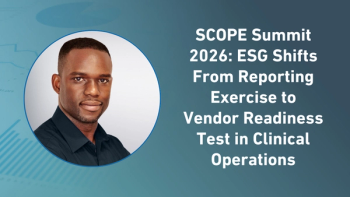
Transforming Clinical Event Adjudication in the Era of COVID-19
There's no one-size-fits-all approach during the COVID-19 pandemic
The COVID-19 pandemic has added significant risk for pharmaceutical and medical device clinical trials by confounding important safety endpoints. Adjudication of clinical events plays a crucial role in ensuring life-improving therapies are developed and brought to market safely, but adjudication programs can be arduous and costly if not managed properly. Today, trial sponsors must be more diligent than ever in their adjudication pursuits while simultaneously grappling with dramatic landscape and procedural shifts caused by the pandemic.
COVID adds complexity to managing clinical event data
An effective adjudication program, regardless of where it is or who is leading it, depends on how clinical event data is managed. However, there is no one-size-fits-all approach. A widely accepted academic or industry standard pertaining to a Clinical Event Committee (CEC) simply doesn’t exist and there is very little regulatory guidance for trial sponsors. Additionally, some event adjudication is still conducted on paper, which in addition to being extremely time-consuming is error-prone and expensive, creating significant resource burdens for organizations.
These challenges often manifest in clinical trials in the form of incomplete source documents or documents containing unredacted patient health information (PHI), putting sponsors at risk for noncompliance with EU GDPR, HIPAA and other privacy regulations. Problems can also arise from delayed reviews by CEC members or poor visibility into the status of event queries or other performance metrics.
The COVID-19 pandemic has exacerbated these challenges by constraining clinical sites, clinical investigators, and trial participants. This disruption has significantly impacted clinical trial operations—interfering with patient enrollment and recruitment, efficient source data collection, protocol adherence and delivery, outcome reporting and regulatory compliance.
Technology paves the way for a new approach
As with many areas of clinical research, innovative new technologies—when combined with deep scientific and medical expertise—can help address these challenges and increase efficiency, data quality and compliance, particularly amid a global pandemic when in-person collaboration and timely problem resolution isn’t always possible.
Compared to paper-based processes and trying to manage complex committee worklists through emails and spreadsheets, web-based adjudication platforms offer many advantages in this new era of remote work. A single, centralized location for everything from source document collection to review, along with AI-enabled redaction capabilities and local translation services, make even the most complex trials manageable from anywhere in the world. Once these benefits are fully realized by trial management teams a return to traditional methods is highly unlikely. Specific advantages enabled by technology that trial sponsors would be wise to embrace moving forward include:
- Remote collaboration utilizing a single, centralized cloud-based platform allows adjudication committee members located anywhere around the world to review clinical event dossiers securely and efficiently, in real time. Adjudicators appreciate that no third-party software is required to access the platform—all they need is simple internet access. This can reduce the time to complete event reviews and mitigate risk for delays. Adjudicators also benefit from integrated display of source documents and images, automated committee worklists, the ability to generate queries within the system directly to trial sites and proactive reminders and alerts.
- Simplified source document management promotes ease when uploading and redacting required source documents for an adjudication trial. Automatic email reminders when source documents are coming due for upload saves valuable time versus staff having to manually look in a system to see what is due or overdue.
- AI-based redaction tools automatically highlight and redact PHI directly within the platform, and many feature build-in translation and human quality control, lessening the site burden and reducing query issuances for non-compliance.
- Customized workflows enable researchers to electronically manage the complete source document submission and safety endpoint review paradigm which often vary by country or region. This is an important element because trial workflows can be extremely complex and made up of dozens of steps, of which many are highly specific follow-ups.
- Advanced analytics and reporting offer sponsors and permitted users online access to view, in real-time, the case review status, data receipt and processing, query status and site performance metrics. The sponsor may also be able to schedule and run reports of charter-defined endpoints. These reports can then be used by CRAs, CRCs and site managers to monitor their performance and ensure compliance with the protocol.
- Advanced security and access control through built-in e-signatures, audit trails, and cloud backups provide security, protection, and audit trail transparency while giving adjudicators ready access to the required information on every clinical event type.
- Flexible system design eliminates any custom programming required to model a custom adjudication process which is traditionally extremely costly for sponsors. The ability to work with sponsors to configure the system based on their unique needs and workflow can be game-changing from a cost and process perspective.
Well-known dissatisfaction with paper and other traditional clinical adjudication processes is unlikely to be tolerated much longer given the availability of these kinds of tools. In today’s world, it is critical that best-in-class, custom research tools are at the fingertips of trial sponsors, CROs and CECs to advance the clinical trial process more effectively than ever before. Performing clinical adjudication via a web-based platform minimizes the risks presented by COVID-19 by alleviating the well-known strain on the various stakeholders, empowering them to finally complete their workflow efficiently, safely, remotely, and securely.
Dan Gebow, PhD, is the Chief Innovation Officer at Bioclinica
Newsletter
Stay current in clinical research with Applied Clinical Trials, providing expert insights, regulatory updates, and practical strategies for successful clinical trial design and execution.




